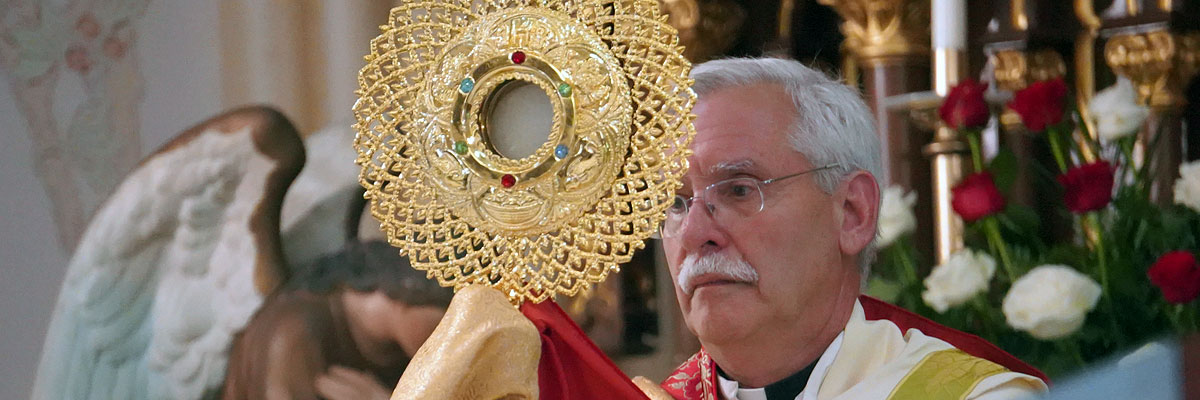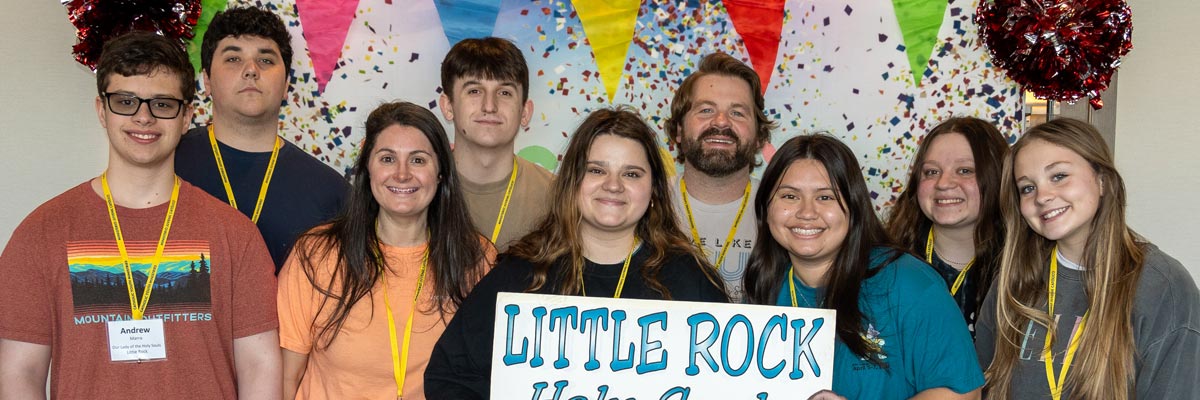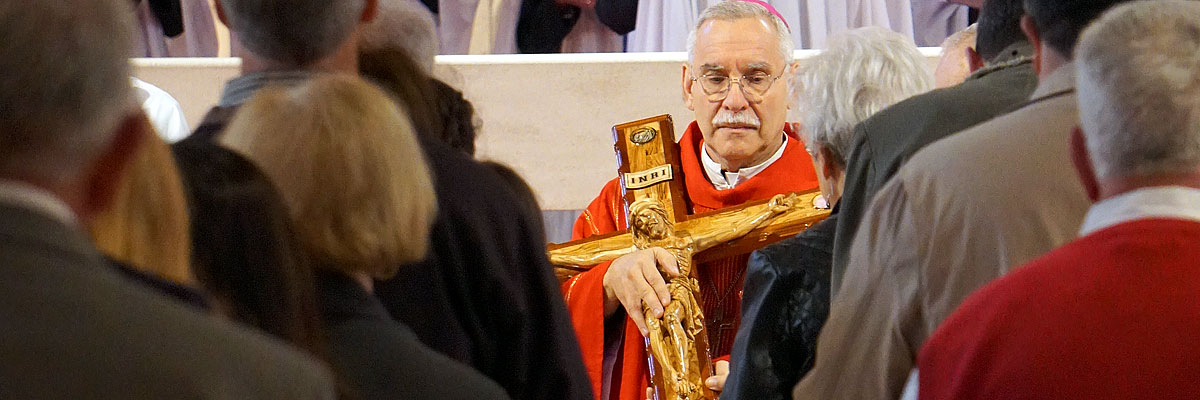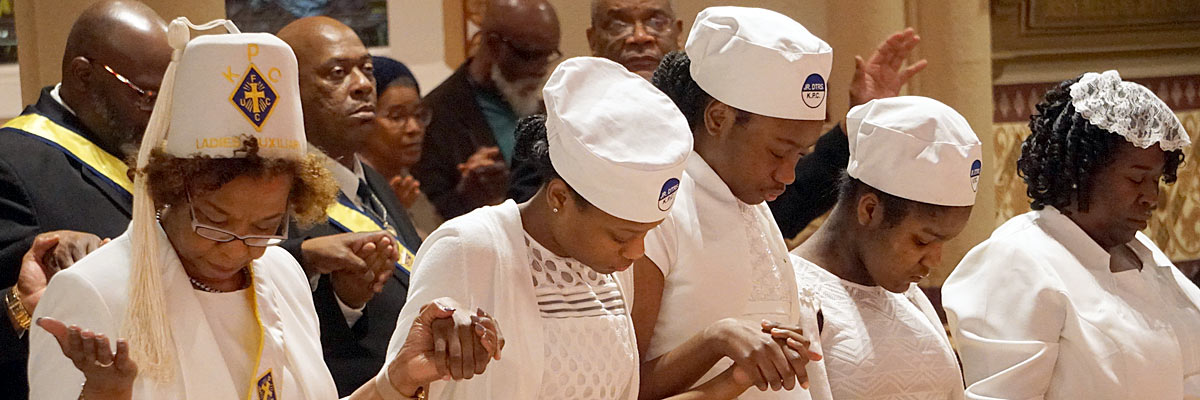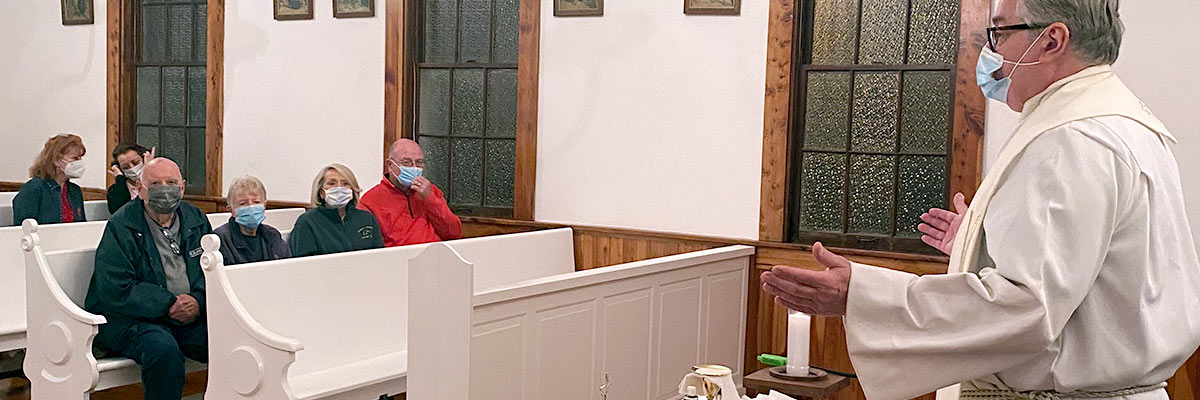Official Website of the
Catholic Diocese of Little Rock
First Sunday of Advent, Year A
Published: November 27, 2016
Bishop Anthony B. Taylor preached the following homily at St. Mary Church in Ponca City, Oklahoma on Sunday, Nov. 27, 2016.

Bishop Taylor
911 means there's an emergency. We use it to call police, firefighters or an ambulance. Some calls don't get made in time because we underestimate the danger (e.g., chest pains) or because the danger was hidden until too late. No one knew of a conspiracy to hijack four airliners on the very day that shares the abbreviation 911 (Sept. 11 is 9-11).
That morning 50,000 people went to work just like any other day. Within two hours one in 10 would be dead. You can be sure that if we had known the hour the terrorists would strike, they would have stayed home and airport security would have stayed alert. But the fact is that terrorists cause horrific disaster and disasters hit when we least expect it.
In today's Gospel, Jesus says his second coming will also occur when we least expect it. Remember the people in Noah's day? They underestimated the danger until it was too late: The flood carried them away. Jesus describes people going to work like any other day and one-half of them dying on the job.
If we don't welcome him when he comes to us in humility for help, how do you think we'll fare when he comes in glory for judgment?
His return will be just that sudden and unexpected! He says you can be sure that if we had known the hour when disaster would strike (for instance, a burglar), we would have stayed alert. And Jesus' second coming will be a horrific disaster for those who are not prepared.
But there are differences. First of all, while it will be the ultimate disaster for many, Jesus' second coming will be an indescribable blessing for those who are prepared. And unlike other sudden disasters, his return is more than a one-time event.
It occurs in three ways: two of which are distinct one-time events, plus a third type of return that is already occurring and will continue to occur until the final two one-time events of Jesus' return take place.
His definitive final return will be at the end of time when human life ends on planet earth, the day of final judgment. Those of us who die before Jesus' final return will also experience his second coming on our own personal, final day, what we call the day of our own particular judgment by God and the consequent reward or punishment that begins for us right then.
And as long as we still live on this earth, there is a third type of second coming, which is already occurring — our response to which will determine how we will fare on the day of particular judgment and final judgment — namely, Jesus' return to us in the person of the needy whom he sends to us today for help.
If we don't welcome him when he comes to us in humility for help, how do you think we'll fare when he comes in glory for judgment?
Misery means there's an emergency and wherever we see misery we should understand it as a call for help. Sometimes we don't respond because we underestimate the danger (including how bad off we will be if we turn our back on the needy) or because we refuse to see the danger: We avoid those parts of town where we know the needy live and we refuse to see the obvious needs around us.
If we realized how much our eternal destiny hinges on how we treat the needy, we'd keep our eyes open for sure and do all we could to help now — and if not because of compassion, at least because it is a solid investment in our eternal future.


